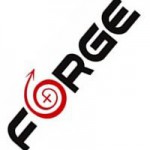Following U.S. Supreme Court decision, new FORGE data confirms need for employment protections for trans/non-binary Wisconsinites
While the U.S. Supreme Court this week handed down a major victory for LGBTQ+ employment rights, the most extensive survey ever conducted of the state’s transgender and non-binary community shows Wisconsin has a long way to go when it comes to ending discrimination against its transgender and non-binary residents.
Conducted by FORGE, a national trans anti-violence organization headquartered in Milwaukee, the survey shows Wisconsinites in transgender/non-binary communities experience high levels of discrimination at work, in school, and in other public settings. The survey gathered data from more than 450 individuals who self-identified with Wisconsin’s transgender or non-binary community.
Highlights from the survey report, due for release later this month, were released today. They include:
- More than a third (38%) of respondents reported experiences of discrimination at work, for reasons including their gender identity/expression (44%), sexual orientation (18%), age (11%), and race (10%).
- While some gender-expansive children whose gender identity is known at school (or their parents) reported positive experiences in K-12 schools (4%), a much higher percentage reported consistently negative experiences (14%).
- The community’s greatest identified needs include appropriate and affordable health care (73%), greater legal protections (65%), employment free of discrimination (62%), safe and supportive schools (57%), and an end to stigma (55%) and street violence (51%) in their daily lives.
- Survey data reflect low levels of full-time employment in addition to the outsized impact that various forms of violence play in the lives of many transgender/non-binary individuals.
According to FORGE’s Executive Director, michael munson, “While our community feels seen (and better protected) by this week’s U.S. Supreme Court decision to affirm that gender identity/expression and sexual orientation are included within the definition of the word sex under Title VII’s employment discrimination protections — we know there is still substantial work to be done to address the discrimination, harassment, inequities, and violence that so many trans and non-binary individuals face on a daily basis. Community-specific quantitative and qualitative data speak volumes—both validating trans peoples’ lived realities, and contributing to conversations and actions that improve the resilience and quality of life for trans/non-binary communities.”
The state’s transgender and non-binary community is a large and diverse community of individuals estimated at somewhere between 34,800 and 69,600 in Wisconsin. Surveyors collected data from transgender and non-binary individuals, their family members and other loved ones, and professionals who serve the trans/non-binary community.
The data released by FORGE today—and the forthcoming complete report of data from the nearly 100-question 2019 Trans Community Needs Assessment, which includes wide-ranging data about community needs, sources of support, and methods of resilience-building—will be posted online at www.forge-wi.org.
NOTE: This press release was submitted to Urban Milwaukee and was not written by an Urban Milwaukee writer. While it is believed to be reliable, Urban Milwaukee does not guarantee its accuracy or completeness.





















